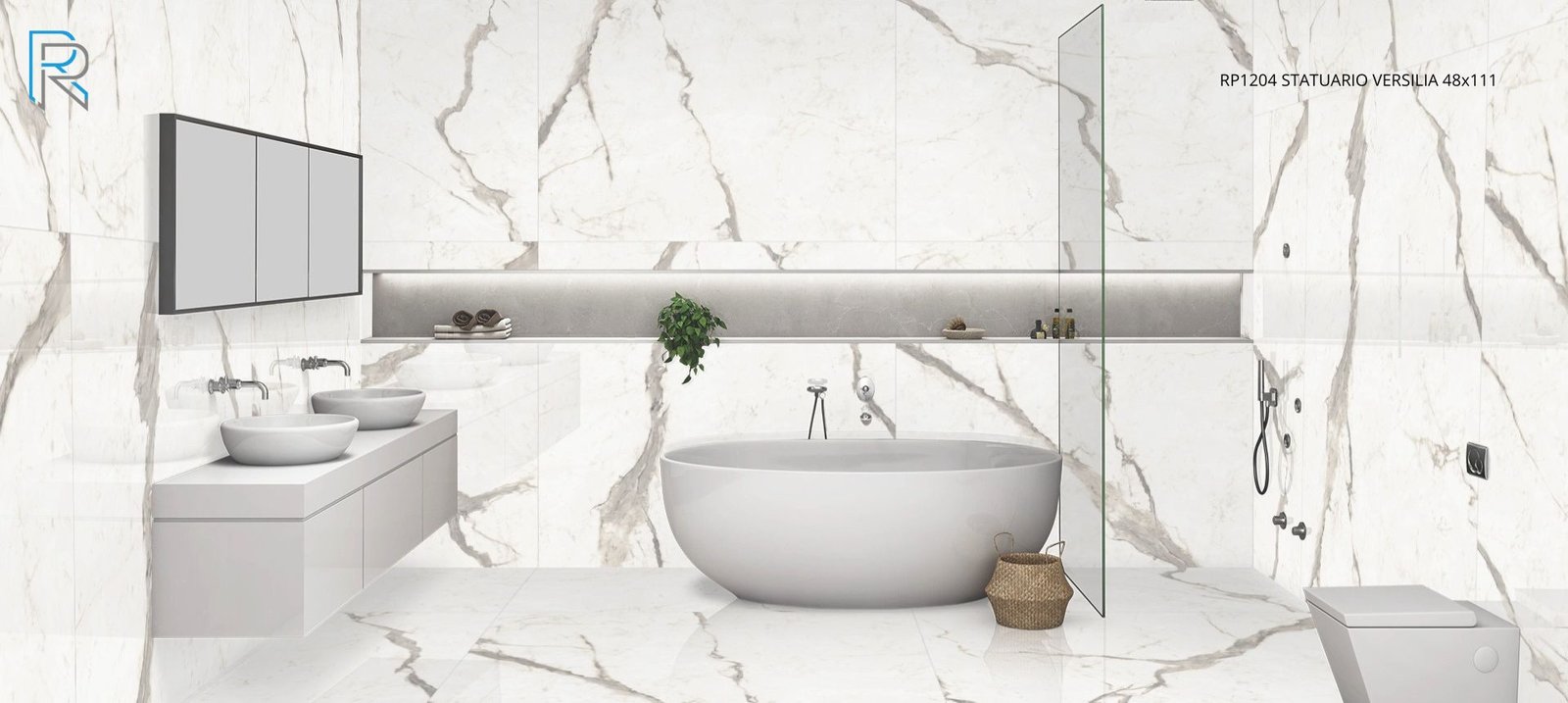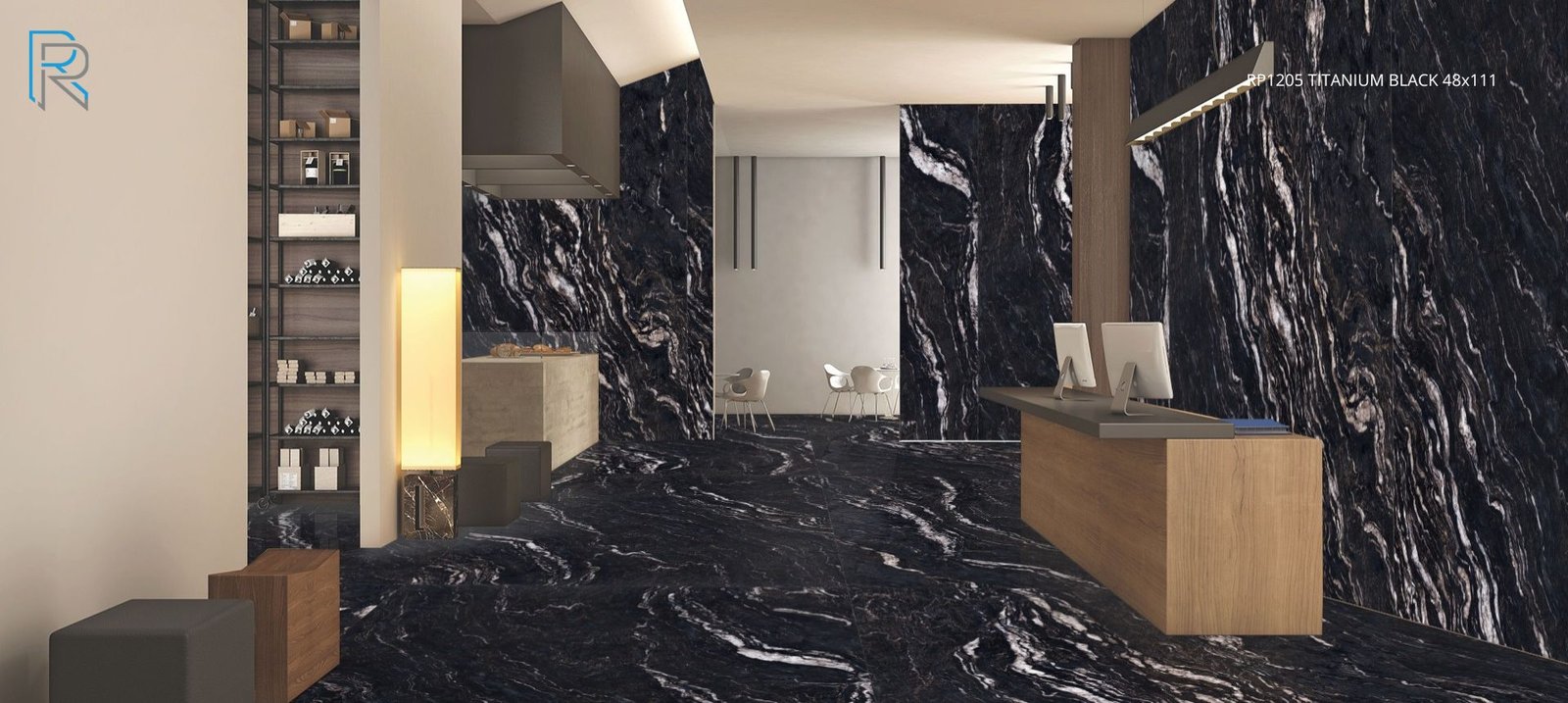10 Tips for Choosing the Best Porcelain Tiles for Your Home in 2023

Will 2023 be the year you renovate your home or build a new one? Porcelain tiles are an excellent option for flooring applications and wall coverings. Whether it’s their durable nature, versatility, or aesthetic appeal that draws you in, making wise choices can appear overwhelming due to all the available options. Here are ten tips to ensure your decision is well-informed and wise!
- Determine your needs: Before you begin your porcelain tile shopping journey, take a moment to consider how they will be used and the environment that they’ll have to endure. Will guests regularly traverse this porcelain floor, or are you looking to add a modern twist to your space? Are there moisture or chemical concerns for shower walls? Understanding these factors enables you to make informed decisions on the porcelain floor or wall tile size and type needed – so pick wisely!
- Consider the look and feel: Porcelain tiles come in a wide range of colors, textures, and patterns, so you can find something to suit any design style. One of the trends in porcelain tiles right now is the use of natural stone finishes, such as marble and granite. For example, Raphael Porcelain comes with 10 porcelain floor and wall tile collections to choose from, including marble-look tile, wood-look tile, and limestone-look porcelain tile; you’ll be sure to find the perfect option for any space. For outdoor spaces, in particular, there are a variety of porcelain floor tiles waiting to transform your patio or walkway into something special. Consider the overall look and feel you want to achieve in the room, and choose tiles that complement your decor. You can use porcelain tiles to create a cohesive look throughout your home by choosing similar or coordinating styles for different rooms. Get some ideas from here.
- Think about durability: Porcelain tiles are renowned for their long-lasting, durable nature and ability to withstand daily wear and tear; however, not all porcelain tiles offer the same quality. Certain materials are more resilient to chipping and scratching than others. If you’re using porcelain tiles in a high-traffic area, it’s worth investing in a more durable option. With Raphael Porcelain tile, you can count on long-lasting dependability and reliability – making it a smart choice for any tiling project. As well as porcelain floor tile, porcelain wall tile is also ideal for wet areas as it is highly resistant to moisture.
- Consider the size of the tiles: The porcelain tile possibilities are practically infinite! You can choose between small mosaic tiles, large format tiles, and those of any size in between. The size you ultimately go with is up to you; however, it’s essential to consider the room dimensions and your desired aesthetic before selecting. Smaller tiles offer an opportunity for expanding the space visually, while more extensive options create a more unified look that stands out as modern and sophisticated. Raphael Porcelain allows you to discover your ideal residential or commercial spaces through 6 porcelain tile sizes and 3 porcelain tile surface finishes, leaving endless possibilities for the perfect look. It also offers a range of sizes and textures for wall tile and flooring tile.
- Think about maintenance: Porcelain tiles are generally low maintenance. However, certain wall tile varieties or flooring may require extra attention to remain in good condition. For example, textured or porous porcelain tile may need to be sealed to protect against stains, while polished porcelain tile may require more frequent cleaning to maintain its shine. Consider your cleaning and maintenance habits when choosing porcelain tile. Here is 7 step-by-step process to clean porcelain tile.

- Check the slip resistance: If you’re using porcelain tile in a bathroom or kitchen, choosing porcelain tiles with a high slip resistance rating is essential to prevent accidents. Porcelain floor tiles with an R rating of 10 are the most slip-resistant. Maintain a safe environment by choosing porcelain tile featuring an impressive COF (Coefficient of Friction) rating: of no less than 0.60! Wall tile and flooring from Raphael Porcelain come with an impressive COF rating to ensure a safe and enjoyable experience.
- Look for quality certification: To ensure that you’re getting high-quality porcelain tile, look for porcelain tile certified by organizations such as NSF, Greenguard, USGBC, Kosher, etc. These certifications guarantee that the porcelain tile meets specific strength, durability, and performance standards. Porcelain floor tiles and wall tiles from Raphael Porcelain are certified by NSF, Greenguard, USGBC, Kosher, and more.
- Compare prices: Porcelain tiles can range from a few dollars per square foot to several hundred dollars per square foot. Although staying within your budget is critical, don’t settle for the least expensive tiles available – something that may cost you more in the long run. Cheap tiles may be lower quality and more prone to breaking or chipping. Instead, look for tiles with a good balance of quality and price. There are often deals and discounts on higher-quality porcelain tiles, so keep an eye out for an affordable price on a product you love.
- Consider the installation process: Porcelain tiles can be heavy and difficult to install, so choosing suitable tiles for your installation method is essential. For example, large format tiles may require a stronger subfloor and special installation techniques. If you’re uncomfortable with the installation process, it may be worth hiring a professional to install the tiles.
- Please order a sample before you buy: Before you make a final decision on porcelain tiles, it’s a good idea to order a sample to see how they look in your home. This will allow you to get a feel for the tiles’ color, size, and overall look before you make a large purchase.
Choosing the best porcelain tiles for your home considers your needs, budget, and design style. Following these tips, you can find the perfect tiles to suit your home and bring your renovation or construction project to life.
FAQ
Q: What is the difference between Ceramic and Porcelain tile?
A: Both ceramic and porcelain tiles are made from clay, but some critical differences exist. Porcelain tiles are denser and more complex than ceramic tiles, and they are also more resistant to moisture, stains, and wear and tear. Porcelain tiles are also fired at a higher temperature than ceramic tiles, which makes them more durable and less prone to chipping. Both Ceramic and Porcelain tiles provide a timeless look for any space.
Q: Porcelain or Ceramic tile, which is better?
A: Depending on the purpose, porcelain tiles are usually a better option. They’re denser and more complicated than ceramic tile, offering excellent protection against wear and tear, moisture, and discoloration. Ceramic tile is made from clay but fired at a lower temperature. As a result, ceramic tile is generally less dense and less durable than porcelain tile. However, ceramic tile is generally less expensive than porcelain tile. Ceramic tile can be a budget-friendly option.
Q: Can porcelain tiles be used outdoors?
A: Yes, porcelain tiles are an excellent choice for outdoor use because they are resistant to moisture, stains, and fading. They can be used for patios, pool decks, and other outdoor spaces. Just be sure to choose a tile for outdoor use with a high slip resistance rating to prevent accidents.
Q: Are porcelain tiles challenging to install?
A: Porcelain tiles can be heavy and difficult to install, huge format tiles. If you’re uncomfortable with the installation process, it may be worth hiring a professional to install the tiles. However, porcelain tiles can also be DIY-friendly if you take the time to prepare the surface and use the right tools properly.
Q: How do I care for porcelain tiles?
A: Most porcelain tiles are easy to care for and maintain. To keep them looking their best, regularly sweep or vacuum the tiles to remove dirt and debris, and mop with a mild detergent or pH-neutral cleaner. Avoid harsh or abrasive cleaning products, as they can damage the tiles. You may need to apply a sealer to protect against stains for textured or porous tiles. Follow the manufacturer’s recommendations for care and maintenance to keep your tiles looking their best.
Q: Is natural stone or porcelain tile more expensive?
A: The cost can vary depending on your specific type and style. In general, natural stone may be more expensive due to its rarity and the fact that it is a natural material. Porcelain tile can also vary in price, but it is generally less expensive than natural stone or any other tile.
Q: Is porcelain good as wall tile?
A: Yes, porcelain can be a good choice for wall tile, considering the intent of use and location. It’s a good choice for high-traffic areas.
Q: What is glazed porcelain?
A: A: Glazed porcelain is a ceramic tile with a thin layer of glass-like material applied to its surface. This layer, called a glaze, is applied to the tile after it has been fired in the kiln. The glaze adds a layer of protection to the tile and gives it a glossy finish.

